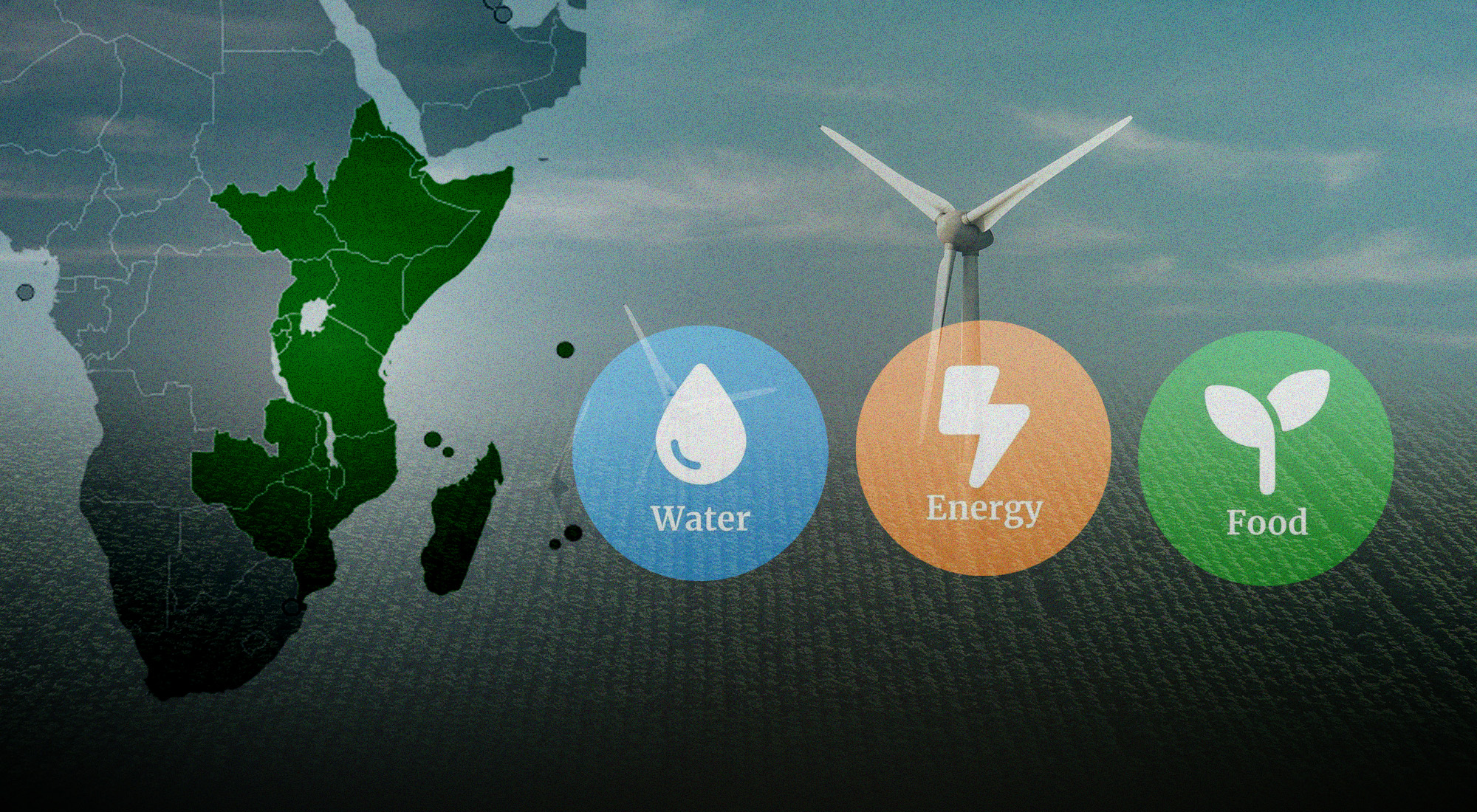The 28th Conference of the Parties to the United Nations Framework Convention on Climate Change (COP28), held in Dubai, UAE, from November 30 to December 13, 2023, concluded with significant progress in climate action. Leaders and more than 70,000 delegates and experts from about 200 nations,[1] participated in intensive talks and deliberations over the course of two weeks, resulting in a number of historic agreements and pledges aimed at addressing the climate crisis.
The creation of the Loss and Damage Fund, the ambitious review of nationally determined contributions, and the historic agreement on fossil fuels have marked historic milestones achieved during the conference. These achievements not only fulfilled the conference’s objectives but also ushered in a new phase in the fight against climate change and global warming. Governments and economic entities from around the world have pledged billions of dollars to support the transition to clean energy and reduce carbon emissions to address the challenges posed by climate change. In light of these accomplishments, many observers consider this summit to be perhaps the most successful since the inception of the United Nations Climate Change Conference.
This paper discusses the main achievements of COP28 and evaluates their significance and effects on the future of global climate efforts. It explores progress in key areas like climate change mitigation, adaptation, and finance. By presenting a comprehensive overview of the conference’s results, the paper aims to inform and inspire further concerted efforts for a more sustainable future.
As the world grapples with the escalating and severe effects of climate change, the decisions made at COP28 represent a quantum leap and a crucial historic stride toward building a carbon-free future and fostering a clean and sustainable life for people across the globe.
Key Achievements
COP28 has attained numerous accomplishments, the details of which may be difficult to fully outline here. A comprehensive agenda covering all aspects of climate change has been diligently executed without exception. Despite unprecedented challenges faced by both the conference’s presidency and the host country before and during this extraordinary session, great efforts were made to foster consensus and produce workable results. Consequently, the conference has succeeded in attaining achievements, some of which are unprecedented to date, including:
1- A Historic Agreement on the Transition from Fossil Fuels
The COP28 summit has reached a “historic” agreement on transitioning away from all fossil fuels with the aim of reaching net zero emissions globally by 2050.[2] After intense negotiations and the extension of the summit for an extra day, delegates from nearly 200 countries agreed on the closing day, December 13, to begin a reduction in global consumption of fossil fuels in order to mitigate the worst impacts of climate change. This is the first agreement of its kind to signal the eventual end of the oil era.[3]
Dr. Sultan Al-Jaber, the UAE Minister of Industry and Advanced Technology and President of COP28, announced the approval of the content of the Final Communiqué of the Climate Conference. He emphasized the provision of a “robust action plan to keep global warming within 1.5°C, based on scientific facts.”[4]
This sends a strong message that the world is committed to addressing climate change and that dependence on fossil fuels is no longer sustainable. The unprecedented agreement will prompt countries, for the first time, to shift away from using fossil fuels to avoid the worst impacts of climate change. The agreement urges countries to exclude fossil fuels from their energy systems. Additionally, the agreement outlines the goal of tripling renewable energy capacity by 2030 and doubling energy efficiency within the same period.[5]
2- Loss and Damage Fund Agreement: A Historic Achievement
The Loss and Damage Fund agreement, reached on the first day of the conference, also represents a historic achievement in international climate negotiations.[6] After years of negotiations, nations reached an unprecedented agreement to establish a new fund to help developing countries facing the gravest repercussions of climate change. This groundbreaking decision acknowledges the destructive impacts of climate change on vulnerable developing nations and establishes a mechanism to provide them with financial support. Several countries announced contributions to the Fund, including the UAE ($100 million), Germany ($100 million), the United States ($17.5 million), and Japan ($10 million), totaling $792 million as of December 12.[7]
The agreement on the Fund is a major step in advancing climate justice. It acknowledges the responsibility of the developed nations for contributing to climate change and creates a mechanism to help developing countries deal with its consequences. This would significantly bolster the resilience of vulnerable communities and promote a fairer and more equitable transition to a low-carbon future.
The Fund will provide much-needed financial assistance to these countries to tackle losses and damages, including climate impacts that unfold gradually over time. Examples of such impacts comprise rising sea levels, desertification, and ocean acidification. Developing countries that are particularly susceptible to the detrimental effects of climate change will be eligible for support from the Fund.
The criteria for eligibility are still being deliberated and are expected to center around factors such as geographical location, economic development, and historical responsibility for greenhouse gas emissions.
The specific funding mechanism for the Fund is still under discussion. Possibilities include contributions from developed nations, levies on fossil fuel emissions, and a share of international carbon markets. The agreement outlines the finalization of the funding mechanism by next year.
Concerning implementation, the Loss and Damage Fund will be activated in the next few years. There are plans for an international governing body to oversee the Fund’s operations, including aspects such as eligibility criteria, allocation of resources, and monitoring of progress.
3- Financing and Resource Mobilization for Climate Action
The primary focus of COP28 was on mobilizing financial resources to support climate action, with various significant developments and agreements aimed at bridging the financial gap and accelerating progress toward the goals of the Paris Agreement. The launch of the ALTERRA Fund by the UAE at COP28 stands out as a major unprecedented accomplishment in mobilizing climate finance. This $30 billion initiative seeks to attract and invest an additional $250 billion by 2030, potentially serving as a crucial catalyst for accelerating global climate action.[8]
This initiative has positioned the UAE as a global leader in climate action. With the creation of ALTERRA, the UAE has taken a practical step toward closing the climate finance gap and providing vital resources to developing countries to execute their climate action plans. This leadership role is a positive example for other nations, inspiring them to elevate their commitments to climate finance. The Fund’s emphasis on investing in developing countries aligns with the UAE’s longstanding commitment to global development and sustainability. By prioritizing the needs of vulnerable communities, the country has established itself as a supporter and champion of climate justice.
The Fund is expected to yield numerous benefits, as its resources will support developing nations in implementing ambitious climate initiatives, thereby advancing the goals of the Paris Agreement. Moreover, it facilitates investments in clean technologies and innovative solutions for addressing climate change, focuses on adaptation projects to help vulnerable communities prepare for and respond to the impacts of climate change, and encourages private sector investments.
Numerous developed nations have pledged to increase their contributions to established public climate finance channels, such as the Green Climate Fund and the Global Environment Facility. Additionally, new initiatives, such as carbon pricing and climate debt swaps, have been examined as mechanisms to unlock additional public finance.
Furthermore, private sector entities have announced billions of dollars’ worth of investment in clean energy, sustainable infrastructure, and other climate-friendly projects. Efforts have also focused on combining public and private finance to leverage public funds and attract more private investments. Meanwhile, initiatives have been introduced to promote green bonds, sustainability loans, and other innovative financial instruments aiming to channel private capital into climate solutions.
Countries have also agreed to improve the transparency of their climate finance flows, which would facilitate tracking progress and ensure resource efficiency. Persistent efforts are also being made to develop standards to measure the effect of climate finance investments and enhance the role of independent institutions in supervising and validating the flows of climate finance.
Thus, by giving priority to finance, COP28 has laid the foundation for the international community for a more sustainable future by ensuring the availability of adequate resources to support the ambitious climate action.
4- Mitigation, Raising Ambition and Accelerating Action
COP28’s mitigation agenda focused on enhancing ambition, accelerating action to reduce greenhouse gas emissions, and reducing global warming. Countries have agreed to revise and enhance their national contributions that identify their national plans to reduce greenhouse gas emissions. These updated national contributions constitute a significant increase in ambition compared to previous pledges. Many countries have agreed to revise and enhance their national contributions, with an average increase in ambition of 30 percent compared to previous pledges.
Most countries have also announced ambitious plans to increase their share of renewable energy in their energy mix and refrain from using fossil fuels. 118 countries have signed a non-binding pledge that aims to increase three times renewable energy capabilities in the world by 2030.[9] This is a critical step towards achieving the Paris Agreement goals and reducing global warming. Many countries have also announced their commitment to phase out the use of coal, a major source of greenhouse gas emissions. This constitutes a major transformation away from fossil fuels in favor of clean energy sources.
Many countries have also announced ambitious plans to increase the share of renewable energy in their energy mix, mainly the UAE, which has launched, during COP28, the world’s biggest concentrated solar power project within the fourth phase of the Mohammed bin Rashid Al Maktoum Solar Park.[10] Governments and private sector investors have also pledged to offer billions of dollars to support the development and deployment of renewable energy technologies.
In addition, numerous initiatives have been launched to reduce methane emissions, such as the Oil and Gas Decarbonization Charter, which was launched by the UAE and Saudi Arabia during the conference. The document is a global charter that aims to accelerate and expand climate action in the industrial sector. It has been signed by more than 50 companies accounting for 40 percent of global oil production, more than 60 percent of which are national companies. This is the largest number of national companies that commit to an initiative to reduce reductions.[11] The potential of carbon capture and storage technologies has also been acknowledged for capturing and storing carbon dioxide emissions, including the establishment of a research center for carbon capture and storage to promote research and development in this field.
5- Adaptation and resilience to a changing climate
While mitigation or reduction of greenhouse gases traditionally dominate the main headings of COPs, COP28 constitutes a significant shift towards adaptation. In recognition of the harsh reality of climate change that can actually be felt throughout the world, the conference has strongly focused on helping communities and ecosystems deal with its unavoidable effects. One major achievement has been doubling adaptation finance by 2025, which is a critical step towards providing vulnerable countries with the necessary resources to build their capability for adaptation. This includes investments in early warning systems, drought-resistant crops, and modernizing the infrastructure.
Also highlighted were nature-based solutions as a cost-effective and sustainable approach for adaptation. This includes mangrove restoration to protect coasts, forestation to counter desertification, and the use of wetlands to purify water.
Technology has also played a prominent role in discussions on the use of artificial intelligence to forecast the climate, drone-operated early warning systems, and climate-resistant agricultural technologies.
Emphasis was placed on community-led adaptation, and the importance of knowledge and local ownership in building resilience was acknowledged. This includes working with indigenous communities to protect traditional practices and enabling them to adapt to changing circumstances.
COP28 has doubtlessly placed adaptation at the top of the global climate’s agenda. An increased focus on finance, innovation and community-based methods offers a promising path forward. By giving priority to adaptation, the conference has given a clear message that we should not only reduce emissions but also prepare for the unavoidable effects of climate change. Nevertheless, there is a need to make continuous efforts to address challenges and ensure that adaptation becomes a reality for the world’s most vulnerable communities.
6- Technology, innovation and leading solutions for a sustainable future
As main drivers to address climate change, technology and innovation received clear attention at COP28. Many relevant issues have been discussed, and several initiatives have been put forward that aim to employ technology to accelerate transformations in clean energy, promote adaptation strategies and support sustainable development. For example, investments were discussed and encouraged in research and development on the technologies needed to capture, recycle and destroy methane emissions. Countries have agreed on working together to share best practices and implement effective strategies to reduce methane. The center facilitates knowledge sharing and cooperation between researchers, policymakers and stakeholders in industry to accelerate the deployment of carbon dioxide capture and storage. Many countries have emphasized at COP28 that they tend to use carbon capture and storage technologies, which is considered a realistic solution to counter climate change, especially since the idea had been previously rejected by some countries.
The summit also witnessed the presentation of the great progress in solar, wind and other renewable technologies. This highlighted their capability to contribute to the future of clean energy. Also stressed was innovation in energy storage technologies, such as batteries and hydrogen storage, to counter the challenges of grid integration and ensure reliable supplies of renewable energy.
By prioritizing technology and innovation at COP28, the international community has taken a significant leap toward a future powered by clean energy, flexible communities, and sustainable development. All of these are important achievements for this summit.
UAE at COP28: Leading by Example
The UAE played a pivotal role in hosting and shaping the outcomes of COP28 in Dubai. In addition to offering a platform for international collaboration, the UAE highlighted its ambitious climate initiatives and leadership on several key fronts:
1. Leadership in renewable energy: The UAE has emerged as a global leader in renewable energy, with ambitious plans to diversify its energy mix and achieve net-zero emissions by 2050. The UAE took the lead before COP28 by announcing “UAE’s Net Zero 2050 Strategy”, an action plan to achieve the goals of the UAE Net Zero by 2050 strategic initiative launched two years ago.[12] It outlines a roadmap to reach net zero through investments in renewable energy, clean energy technologies, and carbon capture and storage.
2. Advocating the Loss and Damage Fund: After years of stalled negotiations, the UAE played a crucial role in mediating a deal to establish the historic Loss and Damage Fund. This historic decision will provide financial assistance to developing countries facing the harshest impacts of climate change and address the long-standing demand for climate justice.
3. Developing adaptation solutions: In recognition of the urgent need to adapt to climate change, the UAE launched the Global Adaptation Hub at COP28. This initiative will serve as a knowledge-sharing platform and a resource center, supporting developing nations in building their capacity to adapt to the effects of climate change.
4. Promoting green finance: The UAE established its position as a hub for green finance, attracting investments and facilitating the flow of capital towards sustainable projects. During COP28, it hosted meetings that brought together financial institutions and investors to discuss innovative financing mechanisms for climate action.
5. Promoting energy efficiency: The UAE has implemented many initiatives to promote energy efficiency and conservation in various sectors. At COP28, it announced new commitments to continue improving energy efficiency, highlighting its efforts to reduce its carbon footprint.
6. Engaging youth and civil society: The UAE actively engaged with youth and civil society organizations during COP28, acknowledging their pivotal role in leading climate action. The Youth-Led Climate Forum and other forums offered platforms for young people and civil society to contribute their voices and ideas to the climate dialogue.
7. Presenting innovations: The UAE utilized COP28 as a platform to highlight its commitment to innovation and technological advancements in combating climate change. The conference included activities and exhibitions that focused on the latest technologies and solutions in various sectors. This highlights the country’s keenness to invest in sustainable solutions.
8. Global cooperation: In addition to its own initiatives, the UAE effectively enhanced cooperation among nations and stakeholders during COP28. The climate-related partnerships established during the conference, with follow-up and support from the UAE, aim to encourage collaboration on specific climate goals and expedite progress toward achieving the Paris Agreement goals.
The UAE’s presidency, leadership, and initiatives at COP28 have had a significant mark on the global climate agenda. Its commitment to renewable energy, adaptation, green finance, and other key areas demonstrates its willingness to take practical and tangible steps toward a more sustainable future. Going forward, the UAE will continue to play a vital role in driving global climate action and ensuring the implementation of agreements reached at COP28.
Conclusion
A quick look at the achievements made at COP28 shows that it was a pivotal moment in the fight against climate change. It gathered over 70,000 delegates from about 200 countries, representing governments, companies, non-governmental organizations, and communities, all sharing a common goal of accelerating climate action.
The conference has achieved unprecedented results by securing a historic agreement to eliminate the use of fossil fuels. This is the first time ever that a global agreement explicitly acknowledges the imperative to shift away from fossil fuels, conveying a strong global commitment to addressing climate change and recognizing the unsustainability of relying on such fuels. This development is crucial, as the world is rapidly approaching critical climate tipping points. The agreement is an important step toward international cooperation in climate action, given that no single country can solve this problem on its own. It also provides a framework for supporting the development and dissemination of clean energy technologies, helping accelerate the transition to a low-carbon future.
Recognizing the significance of the situation, COP28 emphasized the need to move beyond goal-setting and concentrate on tangible actions and implementation plans. This encompasses mobilizing funding, advancing clean technologies, and building resilience capacities to face the impacts of climate change.
The first-ever Global Stocktake shed light on the immense challenge the world is facing, identifying critical areas that urgently require action, such as reducing emissions from fossil fuels and addressing deforestation.
Recognizing the disproportionate impact of climate change on developing nations and the urgent need to support the most vulnerable and affected countries, COP28 made unprecedented progress in establishing and activating a new financial mechanism to address losses and damages caused by climate disasters. This stands as a triumph for justice, particularly for developing nations. This stands as one of the most significant achievements.
The conference outcomes in relation to adaptation demonstrate a growing global commitment to building resilience and protecting communities from the impacts of climate change. The implementation of the global adaptation action plan and supporting the Global Adaptation Hub will be crucial for accelerating adaptation efforts worldwide. Continued investment, innovation and collaboration will be essential to ensuring that vulnerable communities are prepared to face the challenges of climate change. By prioritizing adaptation at COP28, the international community has taken a major step towards building a more resilient and sustainable future for all.
Last but not least, COP28 was a critical turning point in the fight against climate change. While there is still much work to be done, the conference injected renewed energy and momentum into global climate action. The UAE, as the host country, has positioned itself as a leader in this crucial endeavor. Its commitment to climate action will continue to shape the regional and global response to this existential challenge.
[1] “What is COP28 in Dubai and why is it important?” BBC Arabic, November 30, 2023, https://rb.gy/3a3ydr.
[2] “Countries reach ‘historic’ COP28 deal to transition from fossil fuels,” Financial Times, December 13, 2023, https://shorturl.at/xHWZ9.
[3] Valerie Volcovici, Gloria Dickie and William James, “Nations strike deal at COP28 to transition away from fossil fuels,” Reuters, December 13, 2023: https://shorturl.at/ouvyM.
[4] “COP28 approves the UAE historic agreement on climate action,” Sky News Arabia, December 13, 2023, https://shorturl.at/sJ358.
[5] “COP28 reaches a historic agreement on transitioning away from fossil fuels,” Deutsche Welle, December 13, 2023, https://shorturl.at/bjGU0.
[6] “Countries Establish Historic Loss and Damage Fund,” NRDC, November 30, 2023, https://shorturl.at/fhjH8
[7] “Loss and Damage Fund Contributions at COP28 So Far Cover Less Than 0.2% Of Climate-Related Losses in Developing Countries,” EARTH.ORG, December 8, 2023, https://rb.gy/j960sb.
[8] “Financing the New Climate Economy, About ALTÉRRA,” https://www.alterra.ae/.
[9] “118 countries pledge to increase renewable energy by three times by 2030,” Sky News Arabia, December 2, 2023.
[10] “Mohammed bin Rashid inaugurates the world’s biggest concentrated solar power project,” Government of Dubai Media Office, December 6, 2023, https://rb.gy/vz86bm.
[11] “The launch of the Oil and Gas Decarbonization Charter at COP28,” Sky News Arabia, December 2, 2023. https://shorturl.at/ktuES.
[12] “The UAE announces the “UAE’s Net Zero 2050 Strategy,” Sky News Arabia, November 9, 2023, https://rb.gy/ed5aqy.









